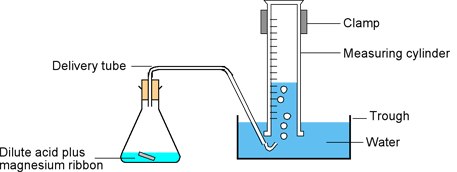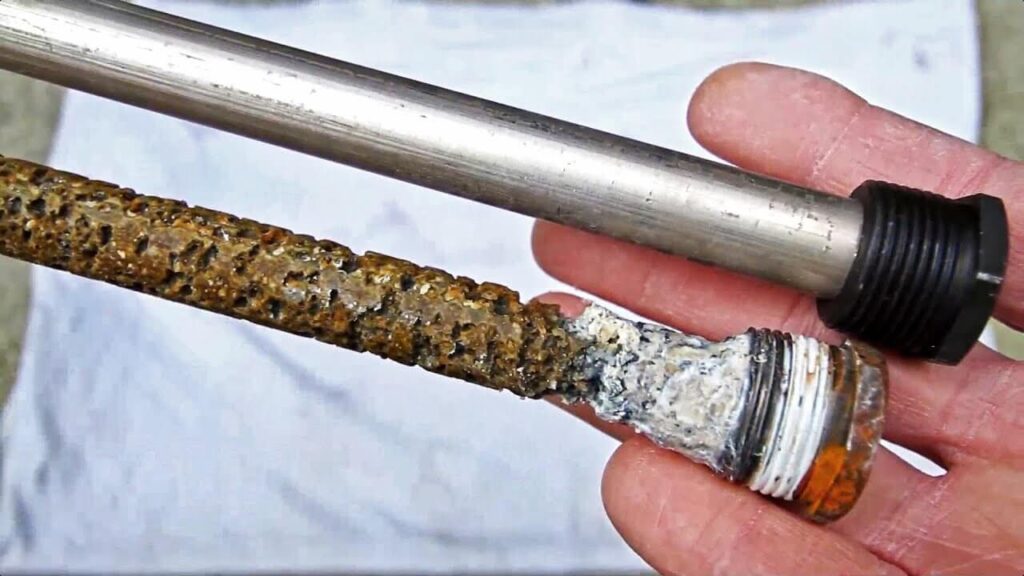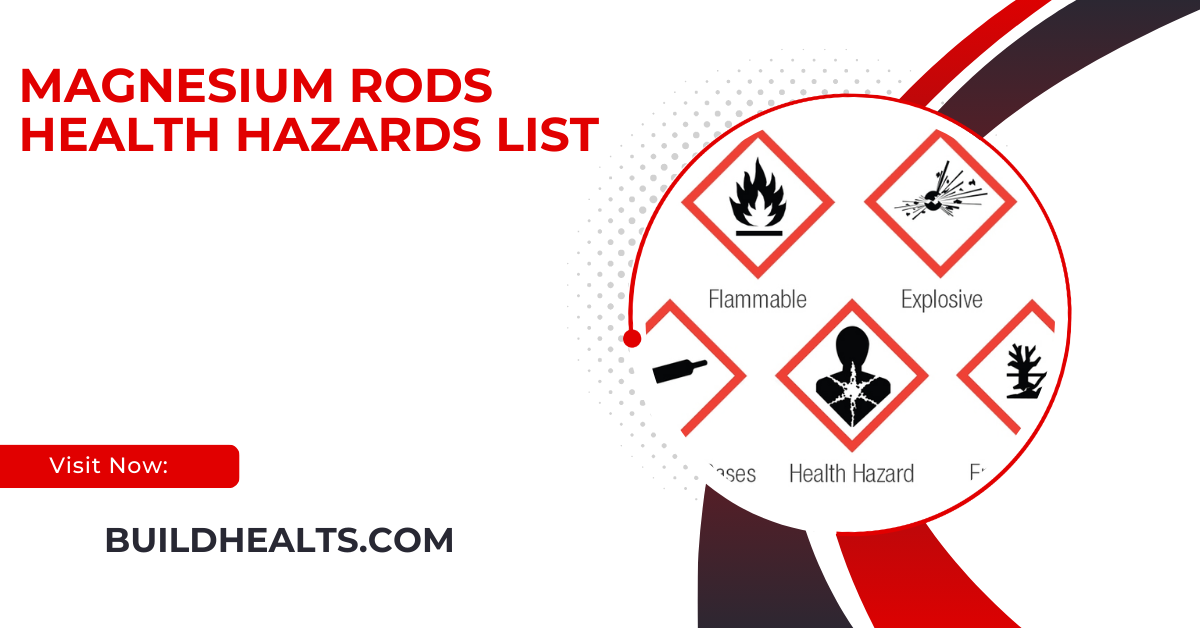Magnesium rods, used for corrosion protection, can pose health risks such as respiratory irritation, skin burns, and fire hazards. Proper handling, ventilation, and disposal are crucial for minimizing these risks.
Magnesium rods are used in various applications, from industrial processes to water treatment. While these rods offer numerous benefits, including corrosion resistance and enhanced performance in certain conditions, it’s important to understand their potential health hazards.
In this article, we’ll explore the health risks associated with magnesium rods, their usage, and how to handle them safely.
What Are Magnesium Rods?
The Basics of Magnesium Rods:

Magnesium rods are cylindrical pieces of magnesium metal used primarily as sacrificial anodes. They are designed to protect other metal surfaces from corrosion. By sacrificing themselves, magnesium rods prevent rust and degradation of more valuable metals.
Common Applications:
Magnesium rods are commonly used in:
- Marine Environments: Protecting boat hulls, propellers, and other metal parts from seawater corrosion.
- Water Heating Systems: Preventing corrosion in hot water tanks and pipes.
- Industrial Equipment: Extending the life of machinery and components exposed to harsh environments.
Health Hazards Associated with Magnesium Rods:
Introduction to Magnesium Rods:
Magnesium rods are commonly used in various industrial and commercial applications, including as sacrificial anodes in water heaters and pipelines, and in some high-performance alloys. Despite their usefulness, there are potential health hazards associated with their use that need to be considered.
Potential Health Hazards:
- Respiratory Irritation: During the manufacturing or cutting of magnesium rods, fine dust or particles can become airborne. Inhaling these particles may cause respiratory irritation or exacerbate existing respiratory conditions.
- Chemical Burns: Magnesium reacts with moisture and air, sometimes leading to the formation of alkaline substances. Direct contact with magnesium dust or shavings can result in chemical burns, especially if the skin is already compromised.
- Fire Hazards: Magnesium is highly flammable and can ignite easily, especially when in powder or chip form. Inappropriate handling or accidental ignition can lead to serious fire hazards, posing risks to health and safety.
- Environmental Impact: The environmental impact of improper disposal of magnesium rods can also indirectly affect health. Magnesium waste can contribute to soil and water pollution, potentially impacting human health through contamination.
- Handling Precautions: Workers handling magnesium rods should use appropriate personal protective equipment (PPE) to minimize exposure. Proper ventilation and safety protocols are crucial to mitigate these health risks.
Is Welding Magnesium Dangerous:
Welding magnesium can be dangerous due to its highly flammable nature and low ignition temperature. When magnesium ignites, it burns intensely, producing bright white light and extreme heat, which can be difficult to control. Proper safety precautions, such as fire-resistant clothing and a well-ventilated area, are essential to prevent accidents.
Chemical Reactions:
Reactions with Water:

Magnesium reacts with water, producing magnesium hydroxide and hydrogen gas. This reaction can be hazardous if not properly controlled, leading to:
- Fire and Explosion Risks: Magnesium fires are difficult to extinguish and can be dangerous if not handled correctly.
- Toxic Fumes: The reaction produces hydrogen gas, which is highly flammable.
How to Minimize Health Risks Associated with Magnesium Rods:
Minimizing health risks associated with magnesium rods is essential to ensure safety in environments where these materials are used or handled. Here are practical steps to reduce potential hazards effectively.
Proper Handling Procedures:
- Use Personal Protective Equipment (PPE):Wear appropriate PPE, including gloves, safety goggles, and dust masks, to protect against direct contact with magnesium dust and particles.
- Implement Effective Ventilation: Ensure good ventilation in areas where magnesium rods are cut or processed to prevent the accumulation of airborne dust. Use local exhaust systems or fans to disperse dust particles.
- Follow Safe Handling Practices: Handle magnesium rods carefully to avoid creating dust or sparks. Store rods in a dry, well-ventilated area to minimize moisture contact and prevent accidental reactions.
- Preventative Measures: Regular Maintenance and Inspections Conduct regular maintenance and inspections of equipment and storage areas to ensure they are free from magnesium dust accumulation and in good working condition.
- Emergency Preparedness: Have appropriate fire extinguishing equipment, such as Class D fire extinguishers, available in areas where magnesium rods are used. Ensure that all personnel are trained in emergency response procedures.
- Proper Disposal: Dispose of magnesium waste according to local regulations and guidelines. Avoid dumping magnesium waste in general trash or recycling streams to prevent environmental contamination.
Training and Awareness:
- Educate Personnel: Provide training for all personnel handling magnesium rods on the potential health hazards and proper safety practices. Regularly update training to reflect new safety protocols or changes in regulations.
- Promote Safety Culture: Foster a safety-conscious culture by encouraging adherence to safety protocols and promoting awareness about the risks and preventive measures associated with magnesium rods.
Work Environment:

Ventilation:
Ensure that work areas where magnesium rods are used or processed are well-ventilated. Proper ventilation helps to reduce the concentration of airborne dust and fumes, minimizing respiratory risks.
Training and Procedures:
Implement proper procedures and train employees on the safe handling of magnesium rods. This includes:
- Emergency Response: Have clear protocols for dealing with spills, fires, or exposure incidents.
- Regular Maintenance: Keep equipment and safety systems well-maintained to prevent accidents.
Environmental Considerations Regarding Magnesium Rods:
When handling magnesium rods, environmental considerations are crucial to minimize their impact. Magnesium rods can produce dust and particles that may contribute to air pollution if not managed properly. To mitigate this, ensure that work areas are well-ventilated and that dust collection systems are in place to capture and contain magnesium dust.
Proper disposal is another key aspect. Magnesium should not be disposed of in regular trash or recycling bins due to its reactivity. Instead, follow local regulations for hazardous materials to ensure safe and environmentally responsible disposal. Avoiding contamination of soil and water sources is essential to prevent potential environmental harm.
Alternatives to Magnesium Rods:

Aluminum Rods:
Aluminum rods are a popular choice as they are lightweight and have good corrosion resistance. They are often used in aerospace, automotive, and structural applications where reduced weight is important.
Stainless Steel Rods:
Stainless steel rods are known for their high strength and exceptional resistance to corrosion and oxidation. They are ideal for applications requiring durability and can handle harsh environments better than magnesium rods.
Carbon Fiber Rods:
Carbon fiber rods offer high strength and low weight, making them suitable for aerospace, automotive, and sporting goods. They are less prone to corrosion and have superior mechanical properties compared to magnesium rods.
Composite Rods
Composite rods, made from materials like fiberglass or aramid fibers, combine lightweight properties with high strength. They are used in applications where both strength and reduced weight are needed, such as in sports equipment and automotive parts.
Plastic Rods:
High-performance plastics, such as polycarbonate or nylon, can be used as alternatives to magnesium rods in applications where chemical resistance and lightweight properties are important. These materials are less prone to corrosion and are generally more flexible.
Each of these alternatives provides unique benefits depending on the specific needs of the application, such as weight, strength, or resistance to environmental factors.
FAQ’s
1. What are magnesium rods used for?
Magnesium rods are used as sacrificial anodes to protect metal surfaces from corrosion in marine environments, water heaters, and industrial equipment.
2. What health hazards are associated with magnesium rods?
Health hazards include respiratory irritation from dust, skin burns from contact, and fire risks due to their flammability.
3. How can I safely handle magnesium rods?
Use personal protective equipment, ensure good ventilation, and follow safe handling procedures to reduce health risks.
4. What should be done if magnesium rods cause skin burns or respiratory issues?
Seek medical attention immediately for severe burns or persistent respiratory symptoms.
5. Are there safer alternatives to magnesium rods?
Yes, alternatives include aluminum, stainless steel, carbon fiber, composite, and high-performance plastic rods, which may offer different benefits based on the application.
Conclusion
Magnesium rods pose health risks including respiratory issues, chemical burns, and fire hazards. Proper handling, ventilation, and disposal are essential to mitigate these risks. Consider alternatives like aluminum, stainless steel, or carbon fiber rods for safer options.




